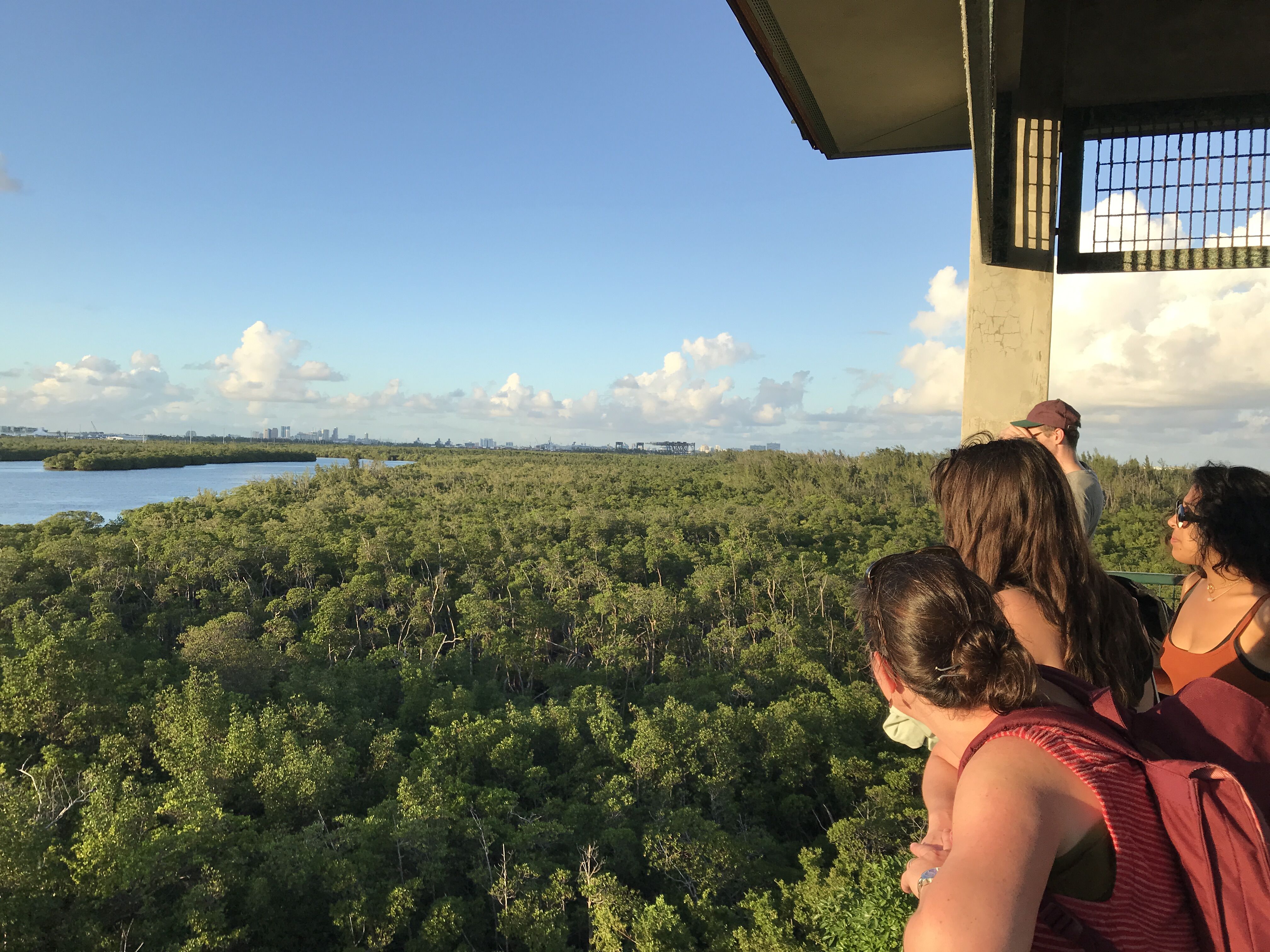
16.09.19 - Assistant professor Fadi Masoud talks to the CBC about designing with climate change in mind
Above: Daniels students in Fadi Masoud's 2017 option studio explore a Mangrove park in South Florida
When Hurricane Dorian collided with the Bahamas, the resulting devastation was a reminder that the world's weather patterns are growing less and less hospitable to coastal communities. Fadi Masoud, an assistant professor at Daniels whose research deals with the impacts of climate change on urban development, spent last week doing multiple interviews with the CBC about some of the ways in which better urban design may help mitigate future natural disasters.
“Obviously we cannot rebuild what was there before,” Masoud told the CBC’s Radio Canada International. “There’s an opportunity for us to restore, enhance, and protect natural defence systems that were there before, such as mangroves, wetlands, marshes and dunes. All of these act as a kind of sponge. They’re the first line of defence.”
“Many have unfortunately been replaced by marinas and seawalls—hard surfaces, which end up increasing the vulnerabilities of the communities behind them.”
One alternative, Masoud said, would be for communities around the world to cultivate greenspace as a defence against flooding, much like Toronto has done with Corktown Common, a flood protection landform that doubles as a public park.
Listen to Masoud’s full Radio Canada International interview here.

